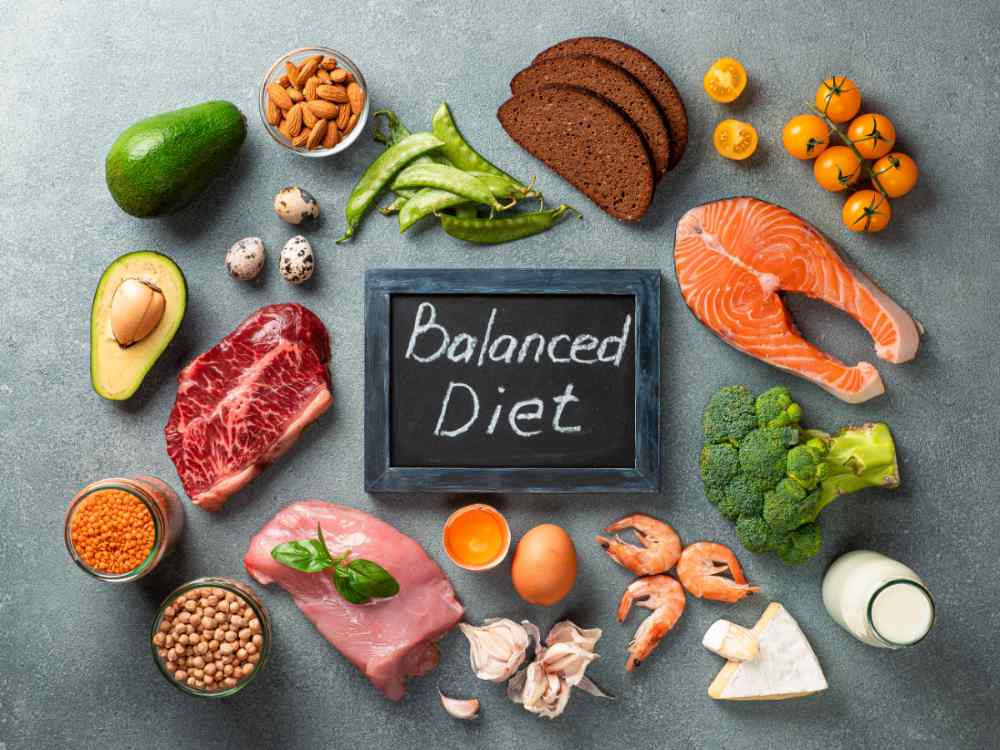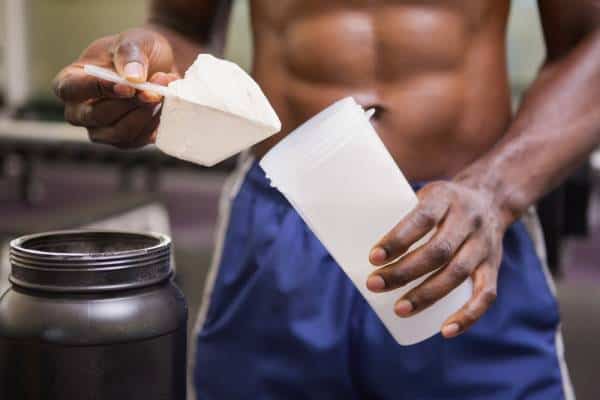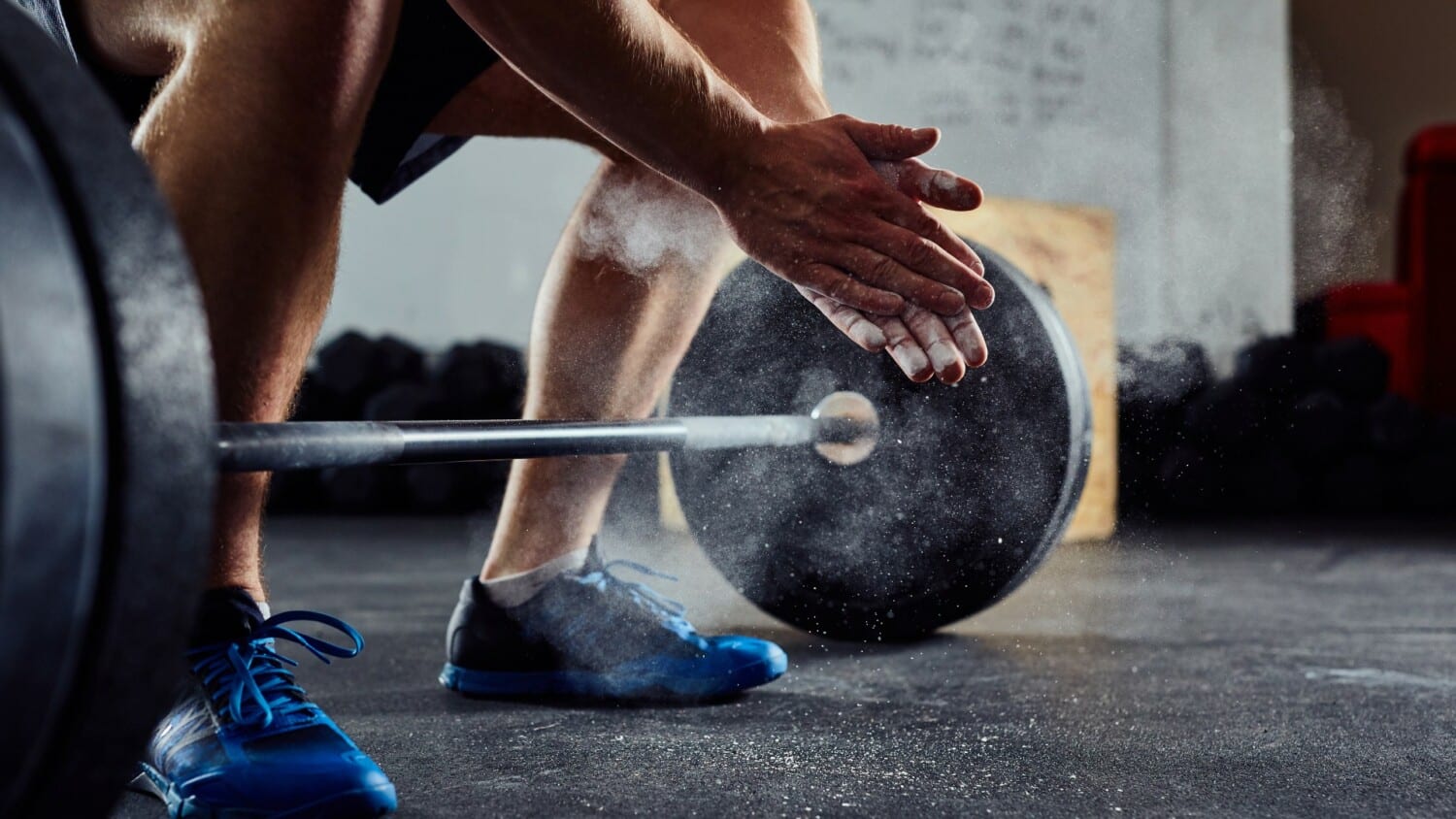O que deves comer se o teu objetivo é ganhar massa muscular
És magro e estás farto. Queres ganhar massa muscular.
Ou secalhar nem és assim tão magro, mas esses músculos insistem em não crescer.
Será que estás a comer de forma certa para ganhar músculo?
Este artigo destina-se a quem faz treino com pesos, ou está a pensar iniciar, com o objetivo simples de…ganhar massa muscular.
Atenção, o objetivo é ganhar músculo, massa magra e não gordura, portanto convêm seguir algumas regras.
Que regras são essas?
Vamos começar pela regra principal, abordar os alimentos mais importantes e ainda esclarecer algumas dúvidas comuns relacionadas com este tema.
Gain muscle mass, the essential
As we wrote in the article about what to eat to lose fat, a grande diferença entre uma alimentação para ganhar massa muscular, e uma para perder gordura, não são os alimentos, mas sim as quantidades.
Podes utilizar exactamente os mesmos alimentos, independentemente do objetivo, precisas sempre é de alterar as quantidades, neste caso para mais.
Agora, é claro que existem alimentos que encaixam melhor numa dieta para ganhar massa muscular, alimentos mais calóricos são bem vindos.
Primeiro que tudo, tal como já te devem ter dito, vais ter que comer muito, mas esse muito deve ser controlado e não excessivo, principalmente para quem tem facilidade em ganhar gordura.
See article: Como ganhar massa muscular (e não gordura).
Ganhar peso é fácil, basta comer MUITO, mas ganhar massa magra já é um pouco diferente.
You will need to follow a diet hipercalórica.
Por outras palavras, vais ter de consumir mais calorias do que aquelas que gastas, e isto sim, é obrigatório.
É o que vais encontrar em todas as dietas para ganho de massa muscular, menos nas que não funcionam.
Muitas proteínas, bastantes hidratos de carbono e também algumas gorduras.
Vais precisar de todos estes macronutrientes para fazer crescer esses músculos.
Não te esqueças, é OBRIGATÓRIO ingerires mais calorias do que aquelas que gastas, sem isto não há balde de proteína que te salve.
Se não sabes quantas calorias precisas, vê This article.
Ah, e não penses em ganhar gordura para transformar em músculo.
A não ser que sejas mágico é impossível transformar gordura em músculo.

Foods to use
Agora que já sabes a regra número um para conseguires ganhar músculo, vamos lá então passar ao título deste artigo.
What should you eat to gain muscle mass?
Deves consumir fontes de proteína de qualidade, hidratos de carbono complexos e gorduras.
Fica aqui então uma boa lista de alimentos para ganhar massa muscular.
Proteins
- Chicken
- Peru
- Red meat
- Any fish
- Tuna cans
- Eggs
- Low-fat fresh cheese
- Quark cheese
- Protein powder
Carbohydrates
- Oat
- Rice
- Pasta
- Pão
- Sweet potato
- Feijão
Fats
- Dry fruits
- Oil
- Peanut butter
- Almond butter
- Fish oil
- *As carnes vermelhas, peixes gordos e gemas são fontes significativas de gordura
Só posso comer isso?!
For those who read the article about what to eat to lose fat, provavelmente está agora a coçar a cabeça.
Os alimentos recomendados não mudam muito, aliás, tirando a inclusão de carnes vermelhas e de qualquer peixe, o resto está praticamente igual.
Remember what you read above.
“Podes utilizar exactamente os mesmos alimentos, independentemente do objetivo, precisas sempre é de alterar as quantidades, neste caso para mais.”
Primeiro, o que interessa (novamente) são as quantidades.
Segundo, estes são os alimentos recomendados para servir de base para a tua dieta, o que não significa que devem ser os únicos alimentos que utilizas diariamente.
Mais uma vez, estas são fontes de proteína de qualidade, hidratos de carbono complexos e gorduras essenciais.
Agora, para além de acrescentares carnes vermelhas e peixes gordos, não mudas mais nada?
You can change if you want.

Consistência
Numa dieta para ganho de massa muscular, tens muito mais liberdade para incluir alimentos teoricamente menos recomendáveis, e tendo em conta que o mais importante para ter bons resultados é a consistência, têm isso em conta quando planeares a tua alimentação.
Se não gostas de aveia, e achas que não vais conseguir comer aveia todos os dias ao lanche, inclui outra fonte de hidratos de carbono.
Detestas carne de perú?
Não precisas de a comer, utiliza outra fonte de proteína.
Na lista acima, quais são os alimentos que gostas e quais são os que detestas?
Tenta incluir o máximo de alimentos da lista, mas aqueles que detestas, detestas. Não os utilizes.
Não há alimentos obrigatórios ou insubstituíveis.
O ideal será sempre construíres a tua dieta, como explicamos in this article.
Para quem não o pretende fazer, utilizar estes alimentos como base, em boa quantidade, já é uma grande vantagem em relação a quem não toma qualquer atenção à sua alimentação.
Utiliza uma fonte de proteína em todas as refeições, combina com uma de hidratos de carbono e/ou gorduras, e faz várias refeições ao longo do dia desta forma.
Não te esqueças de incluir legumes e vegetais na tua alimentação, são essenciais, e de beber pelo menos 1,5L de água diariamente.
How many times should I eat a day?
Não há um número exacto e não precisas de fazer 7 ou 8 refeições por dia para não entrar em catabolismo.
Preocupa-te mais em atingir os valores de macronutrientes que precisas diariamente do que em quantas refeições fazes.
Por norma, comer a cada 3/4h é um bom padrão.
Agora, se só conseguires fazer 4 refeições por dia por motivos profissionais, não é por isso que vais deixar de evoluir, simplesmente vais ter de fazer refeições maiores.
What should I eat before and after training? And before bed?
You find the answer to what you should eat before and after training in this article, já para o que comer antes de dormir, see here.
What supplements should I use?
As for supplements, não há nenhum suplemento que vá ter um efeito DRÁSTICO nos teus resultados.
That being said, some of them can provide significant help, and be an added value, such as proteína em pó and the creatine.
If you want to know more about supplements to gain muscle mass, you can find here várias sugestões.

Dois problemas (muito) comuns
Gain weight too quickly
Na primeira semana ganhas 2kg, na segunda mais 2, na terceira metes 3 e no fim do mês ganhaste um total de 10kg.
Parabéns, acabaste de ganhar um monte de gordura!
É impossível ganhar 10kg por mês de massa magra, e ganhar peso muito depressa não é sinal de bons resultados.
É sinal de calorias a mais.
Não te esqueças, quanto mais massa gorda ganhares, mais tempo vais passar a eliminá-la na passadeira e na cozinha.
Para te ajudar, vê o artigo Como ganhar massa muscular (e não gordura).
Always be the same
A balança não sobe, o braço não cresce, o peito não aumenta e a percentagem de gordura não mexe.
What is up?
Estás sempre na mesma.
Increase calories.
Se estivesses em excesso calórico existiam mudanças, nem que fossem apenas aumentos de gordura.
Se o teu problema for não conseguir comer mais, tens here some tips that can help you.
Atenção, se estás igual depois de apenas uma semana de treino, isto não se aplica ao teu caso.
Estes são apenas dois erros muito comuns, mas encontras muitos mais no artigo I don't have results at the gym, what now?
Treino de musculação
Por fim, apesar do tema ser o que comer, era impossível não abordar o treino quando o objetivo é ganhar massa muscular.
Ao contrário de quando se fala de perda de gordura, em que é possível fazê-la sem treino, é impossível ter ganhos de massa magra significativos sem treinar.
Para além disso, de nada te serve a dieta perfeita se o treino for fraco.
Sem estímulo o músculo não cresce.
Set a good training plan and follow it consistently.
Choose bons exercícios, mete peso e tenta aumentar as cargas regularmente com uma boa técnica.
Vê a nossa secção completa de artigos sobre treino here.
Quanto melhor for o treino e o teu empenho, melhores serão os resultados da alimentação. E vice-versa.
O que comer para ganhar massa muscular, a conclusão
Segue uma dieta hipercalórica com uma boa quantidade de proteínas, mas também de hidratos de carbono e fats.
Para além disso, não te limites a comer frango e batata doce só porque são apelidados de comidas limpas.
Podes e deves variar as tuas escolhas de alimentos, desde que encaixem nos teus valores de macronutrientes diários.
We advise you to see This article to better understand how to build a diet in a simple and effective way.
Por fim, não te esqueças que o segredo reside na consistência dia após dia, mês após mês. Sê paciente e pensa a longo prazo.
Ah, e não te esqueças de treinar todos os grupos musculares.
Sim, as pernas também fazem parte do corpo.
Alguma dúvida basta utilizares a zona de comentários em baixo.





Eu vou na terceira semana de ginásio, o meu objectivo é engordar massa magra claro…mas em quase três semanas emagreci 3kg é normal!? Também já não fazia exercício a 4 anos… como de em 3 em 3 horas e penso que como bem… bastante até… e meto sempre proteína e hidratos em tos refeições. .. é normal isto! ? É normal perder peso agora no inicio?!
A alimentação agora, é a mesma que fazias antes do ginásio?
Nem pensar lol nunca tinha feito broculos na vida! e posso dizer que comia vegetais ou mesmo fruta prai 5 ou 6 vezes por ano! mudei radicalmente a alimentacao, desde cortar nos acucares todos, em oleos…enfim, começei a comer limpo/saudavel… é de realcar que comecei com 75kg e estou com 72kg agr…mas o meu peso sempre andou nos 80kg que é o meu objectivo de peso…
Ou seja, provavelmente estás a consumir menos calorias ao eliminar certos alimentos e a queimar mais através do treino, daí a perda de peso.
Bom dia, tenho estado a seguir as excelentes dicas do vosso site. Sigo sempre que posso a dieta para 3000calorias/dia e todos os dias levanto pesos no ginásio, sempre acompanhado por um PT. A minha questão prende-se na preparação da papa de aveia. Eu como papa de aveia duas vezes por dia, uma de manha e outra no lanche da tarde, no entanto eu faço papa de aveia com açucar mascavo. Posso continuar a preparar a papa de aveia com o açucar mascavo ou não? Caso não, qual o melhor modo de preparaçao? Sempre grato pelas vossas dicas.
Oi João, podes utilizar o açúcar para preparar a aveia, mas não te esqueças que assim estás a subir o número de calorias e hidratos de carbono, mas desde que não utilizes muita quantidade, não há problema :)
Boa tarde, tenho 37 anos, 1.81m e peso 78kg. Tenho extrema dificuldade no ganho de massa muscular (ectomorfo) e sempre tive um pouco de gordura na barriga. Retomei as minhas actividades no ginásio em janeiro de 2017 e tenho sido acompanhado por um PT para o ganho de massa muscular. Ao mesmo tempo, o meu nutricionista passou-me um plano alimentar muito semelhante a vossa dieta do aumento de massa muscular 3500 calorias. Tenho feito 6 refeições por dia. Quanto a suplementação, tenho tomado whey protein isolate ao pequeno almoço e pós-treino juntamente com creatina e glutamina. Tenho também tomado o muscle mas da beverly 4 x por dia, incluíndo à noite após o jantar. A minha preocupação é que apesar de estar a notar um aumento de massa muscular principalmente nos bíceps, notasse claramente um aumento de gordura na barriga e é aí que reside o meu problema. O que tenho feito errado? Será que tenho estado a consumir demasiada proteina? ou demasiado carbohidrato? Grato pelo vosso apoio. OBS: já não consumo acuçar, fritos, refrigerantes a mais de 5 anos.
Oi João.
É normal existir um pequeno aumento de gordura quando se tenta ganhar massa muscular, mas se é algo muito evidente, provavelmente as calorias estão demasiado altas.